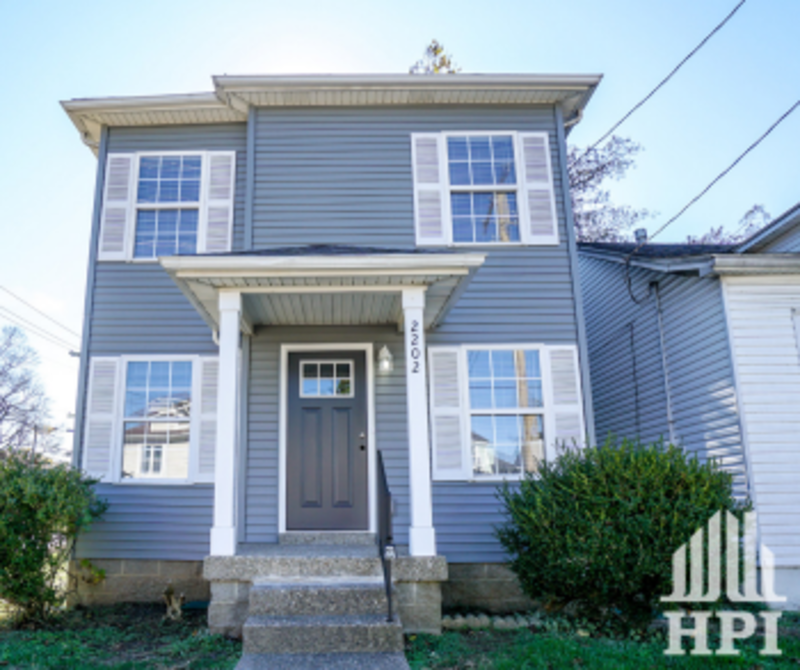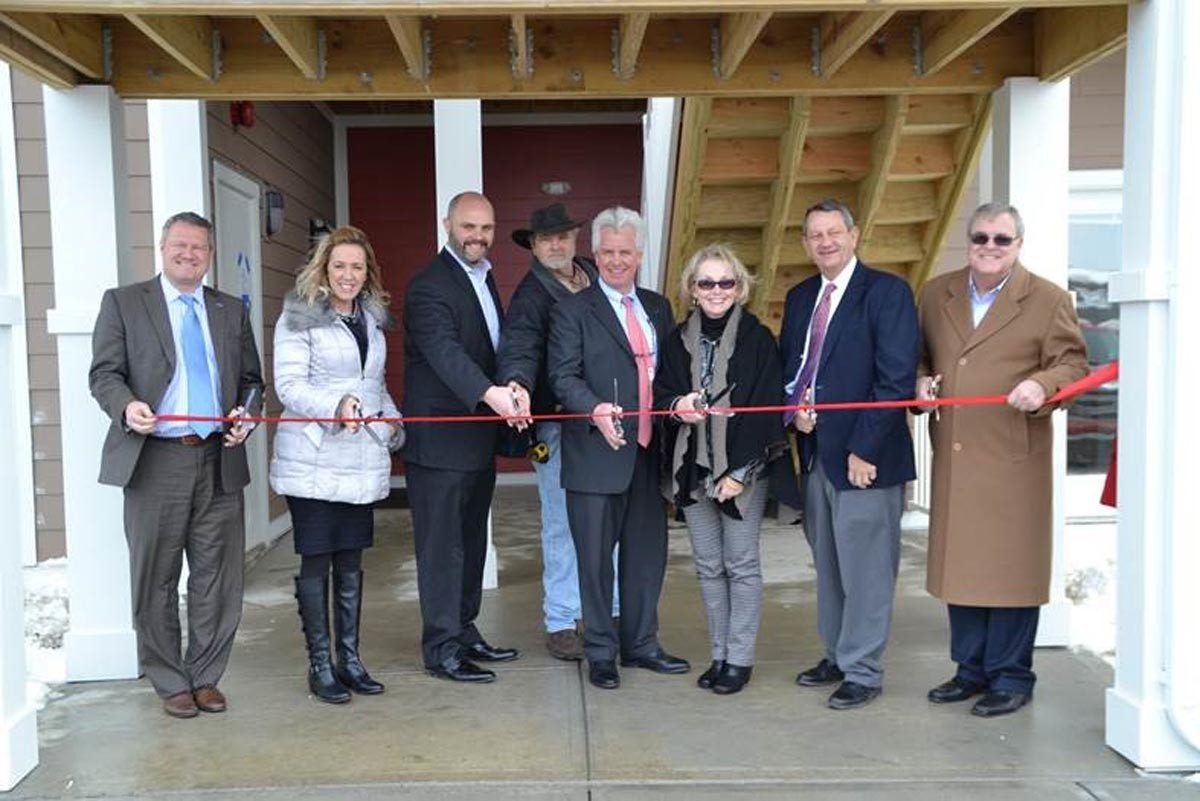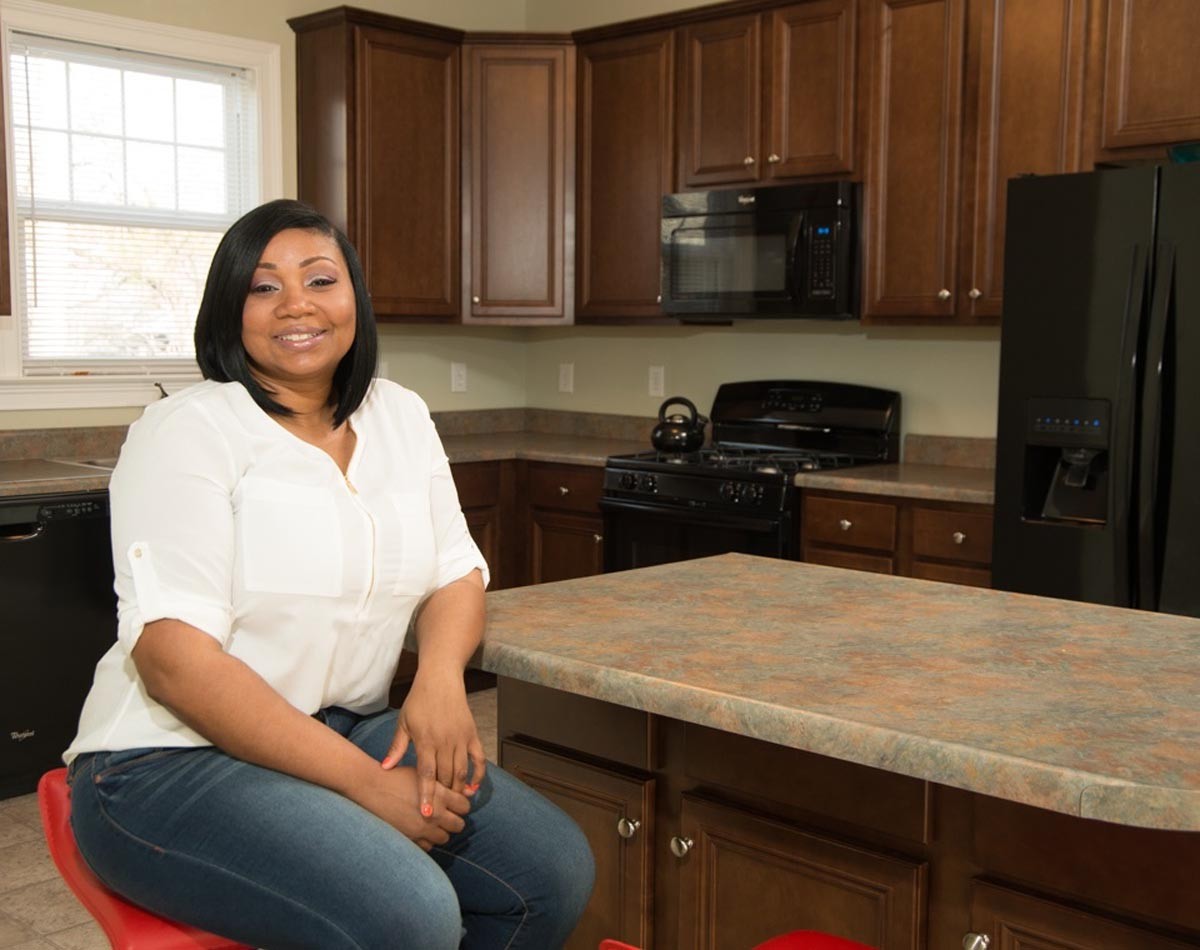Featured Impact Story

Impact Story
Creating Homeownership Opportunities for West Louisville Residents
Since 2017, the Housing Partnership Fund (HPF) has pioneered the use of New Markets Tax Credits (NMTCs) to subsidize development and sale of single-family homes, making them more affordable to homebuyers with low or moderate incomes. Equity raised through the Housing Partnership Network (HPN)’s NMTC allocation provides a flexible subsidy to increase homebuilding, reduce the cost of home buying, and strengthen the local economy. In 2021, HPF made a NMTC investment to boost single-family homeownership among individuals and families of color as part of a cornerstone initiative of The Housing Partnership, Inc. (HPI). HPI aims to make homeownership less costly than renting and revitalize disinvested neighborhoods west of Louisville’s infamous “9th Street Divide.”
The long-term goals of Beyond 9th are to provide wealth-creation opportunities to predominately black communities and reestablish homeownership in historically redlined neighborhoods. The homes will be sold at an average price of $104,600, in line with the rising market and in keeping with neighborhood revitalization efforts. The houses are affordable for households earning between 30%-80% of the Area Median Income (AMI), with a median AMI of 48%. HPI also helps homebuyers secure down payment assistance.
To date, the impacts of Beyond 9th include:
- The average AMI of homebuyers is below 60% AMI.
- Of all home sales, 90% have been to people making 80% AMI or lower
- 81% of home sales have been to black families
- 60% have been to female heads of household
- 55% of houses were aided by minority- or female-owned contractors
“Innovative financing from the Housing Partnership Fund is making it easier for us to build back better and to move renters into homeownership where they live.” – Andrew Hawes, President & CEO, Housing Partnership, Inc.
Read the full story here.
Impact Story
Owning Our Own Risks
In late 2001, the U.S. insurance industry experienced a hardening market, meaning premiums increased, coverage terms were restricted, and capacity decreased. Housing Partnership Network (HPN) member developers were experiencing significant escalations in premiums on property and casualty insurance, and declination of coverage for some of their affordable housing properties. In fact, some members had seen their insurance premiums double over the preceding three to four years.
The volatility of the insurance market put members’ business sustainability and property affordability at serious risk, resulting in program cuts, rent increases, or both. After exploring several options, the working group recommended to the HPN board that it form a captive insurance company to supply property and casualty coverage to interested members.
In 2004, the Housing Partnership Insurance Exchange (HPIEx) was formed. After the captive launched with 14 members, representing 33,000 units, today HPIEx serves 24 members insuring over 100,000 affordable units. It has also distributed back to the members more than $15 million on an initial equity investment of approximately $5 million, proof that the captive is delivering on its original financial goals and intended benefits to members.
“HPIEx has been a stable and long-time partner for MidPen. We find tremendous value in the transparency of pricing while being able to participate on the board, in essence managing and controlling the impact we have on maintaining stable insurance pricing.” – Janine Lind, Chief Operating Officer, MidPen Housing
Read the full story here.
Impact Story
Supporting Community Ownership in South Florida
New Urban Development’s (NUD) Coconut Grove Initiative is the culmination of a long-term strategic vision to work with local partners to create mixed-income housing. This initiative is explicitly designed to mitigate the rapidly gentrifying Coconut Grove neighborhood, one of Miami-Dade County’s oldest Black communities. The proposed development site’s first five parcels were already under local neighborhood ownership of Grovites United to Survive (GUTS), a 25-year-old community group composed of families and individuals working and living in Coconut Grove.
Initially, our CDFI, Housing Partnership Fund (HPF) provided a $1.5 million acquisition loan to buy this final .25-acre parcel that would support an eight-story multifamily development with ground floor retail space, and a combination of one-, two-, and three-bedroom units ranging in size from 700 to 1,200 square feet. The project, as proposed, will further NUD’s mission to create mixed-income housing, with 1/3 affordable at 60% AMI (Area Median Income) and the other 2/3 as market rate units.
Subsequently, HPF worked with NUD and two other CDFIs (Community Development Financial Institutions) - Florida Community Florida Loan Fund and BlueHub Capital - to provide a $6.7 million loan to buy all the parcels associated with this development, allowing GUTS to benefit from its early investment in their community.
“HPF is an outstanding financing partner that supports and augments the capacity of nonprofit developers working in hard-to-develop areas." – Oliver Gross, President, New Urban Development
Read the full story here.
Impact Story
Working capital for developers led by people of color

In 2021, Housing Partnership Fund (HPF) launched the Housing Equity Fund (HEF) to provide catalytic, enterprise-level capital to HPN members who are led by people of color at the CEO or Board level. Through this product, HPF aims to address a critical capital barrier perpetuated by systemic racism. Just 2% of real estate companies in the US are black-led and 1.5% of real estate assets are controlled by firms owned or led by people of color. HEF loans are interest-only, working capital loans that support affordable rental and homeownership activities. HPF closed its first HEF loan in December 2021.
Homeport, based in Columbus, OH, has seen its development pipeline balloon in recent years, requiring the developer either to spend more of its cash to move projects through predevelopment or secure predevelopment project loans. Like many HPN members, Homeport has also used its own resources to bridge committed soft funds from public agencies that were delayed. As an alternative to using valuable cash reserves or being forced to obtain project-specific financing, Homeport applied to HPF for working capital to increase the organization’s ability to move more efficiently through acquisition and predevelopment. Leah Evans, pictured above, became Homeport’s CEO in January 2022, after serving for several years as its head of Real Estate Development. Leah’s ascension to this leadership role during underwriting allowed HPF to utilize HEF capital to provide a lower rate than HPF’s traditional enterprise loan product.
“We are confident that as Homeport continues to grow, HPF will be there to grow with us.” – Valorie Schwarzmann, CFO, Homeport
Read more about the Housing Equity Fund.
Impact Story
Housing US veterans

In its mission to end veteran homelessness, the U.S. Department of Veterans Affairs (VA) has found a vital ally in the Housing Partnership Network. In 2010, VA started a five-year initiative to address the staggering numbers of those formerly in the armed forces left without a roof. The government organization approached the Housing Partnership Network to see if its members could help find affordable residences for unhoused veterans. Several HPN members took a pledge to provide housing for homeless veterans and are well under way in their efforts to curb the epidemic.
One such HPN member is REACH Community Development Inc., an affordable housing provider based in the Portland, Oregon metropolitan area. REACH CEO Dan Valliere said the group is in discussions with the local housing authority to prioritize new openings to veterans with HUD-VASH supportive housing vouchers. His goal is to make more units available to former servicemen and women in the expensive Portland rental market. "We're trying to see how we can be part of the solution," he said. REACH owns and operates Gray's Landing, a streetcar-accessible building in downtown Portland where about 20 percent of the units--42 apartments--are set aside for formerly homeless Veterans referred by VA. There, a VA case manager is on site for 20 hours each week to assist Veterans with financial or life challenges and to help them stay connected to the community.
Impact Story
Ohio Capital Corporation for Housing

Ohio Capital Corporation for Housing, a member of the Housing Partnership Network, recently celebrated the grand opening of Helton Point Apartments in Williamstown, KY. The apartment complex includes six two-bedroom apartments and 17 three-bedroom apartments with air conditioning, stainless steel appliances, and laundry machine hookups. These apartments are intended to provide a home for low-income families in the area in search of more affordable accommodations. Williamstown is a small town with a population of about 4,000. Almost 16% of the population lives below the poverty line, and children and seniors are particularly at risk. Affordable housing allows residents to maintain independent lifestyles without compromising their financial stability. Thanks to Ohio Capital Corporation and the Housing Partnership Network, dozens of families will be able to have a stable, secure and affordable place to call home.
Impact Story
Homeownership can help reshape your life

The Housing Partnership Network (HPN) is a community of 100 nonprofit housing developers, owners and financial institutions across the U.S. Together, the network leverages talent, market power and business innovation to help millions of people gain access to affordable homes in communities that offer economic opportunities. For Rockea in Indianapolis, she came to the Indianapolis Neighborhood Housing Partnership to help understand all her options before buying a house. She chose to buy a house in an area of town that was undergoing transformational redevelopment and she has been able to sustain her livelihood while paying her mortgage. Her mother, father, aunt, grandmother and grandfather have all become homeowners in the past 14 years too. In line with NHP’s mission, homeownership helped reshape her life.
The information presented is provided by our portfolio partners for general informational purposes only. We have not independently verified for accuracy or completeness. The testimonials presented reflect the personal experiences and opinions of portfolio partners and their investees, and do not guarantee the same results for others.








 Affordable Housing
Affordable Housing
 Community Development
Community Development
 Gender Equity
Gender Equity
 Environmental Sustainability
Environmental Sustainability


